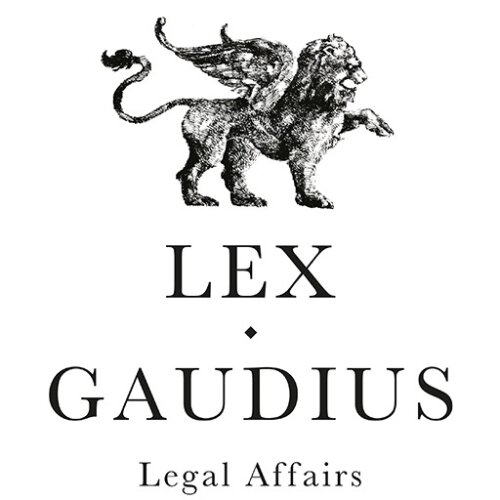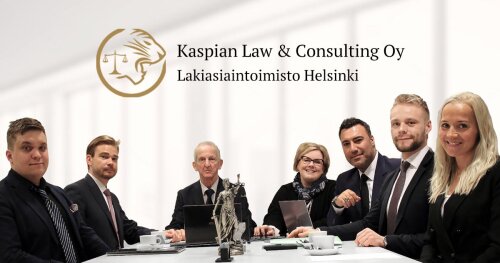Best Trusts Lawyers in Helsinki
Share your needs with us, get contacted by law firms.
Free. Takes 2 min.
List of the best lawyers in Helsinki, Finland
About Trusts Law in Helsinki, Finland
Trusts law in Helsinki, Finland is governed by the Finnish Trust Code, which came into effect on January 1, 2012. A trust is a legal relationship where a person (the settlor) transfers their assets to another person (the trustee) who manages and administers the assets for the benefit of other individuals or entities (the beneficiaries). Helsinki recognizes the validity of trusts, making it an important legal mechanism for estate planning and asset protection.
Why You May Need a Lawyer
Engaging a lawyer who specializes in trust law is recommended in certain situations, including:
- Creating or establishing a trust
- Choosing the appropriate trust structure
- Modifying an existing trust
- Disputes related to trust management or distributions
- Mediating conflicts among trustees or beneficiaries
- Understanding tax implications of a trust
Local Laws Overview
It's important to be aware of the following key aspects of local trust laws in Helsinki:
- Trustees: Trustees are subject to a fiduciary duty, meaning they must act in the best interests of the beneficiaries and manage the assets carefully and responsibly.
- Validity of Trusts: Helsinki recognizes the validity of trusts created both domestically and abroad, as long as they comply with applicable legal requirements.
- Taxation: Trusts may have tax implications, and it is crucial to understand the tax treatment of distributions and assets held within a trust.
- Duration of Trusts: Trusts in Helsinki can be perpetual, unless limited by the terms of the trust instrument or any applicable laws.
- Trust Registration: Generally, there is no legal requirement to register trusts in Helsinki. However, it may be advisable to keep accurate records and documentation to facilitate trust administration.
Frequently Asked Questions
1. Can a trust be created for charitable purposes in Helsinki?
Yes, Helsinki allows the creation of charitable trusts for various charitable purposes, such as promoting education, science, culture, or assisting the needy.
2. What are the main advantages of creating a trust in Helsinki?
The main advantages of creating a trust in Helsinki include asset protection, effective estate planning, confidentiality, and the ability to provide for the financial well-being of future generations.
3. Can a trust be revoked or modified in Helsinki?
Trusts in Helsinki can be revoked or modified, but this may require the consent of the settlor, trustee, and beneficiaries, unless the trust instrument provides otherwise.
4. Are there any tax implications associated with trusts in Helsinki?
Yes, trusts in Helsinki may have tax implications, and it is recommended to seek advice from a tax professional to understand the specific tax rules applicable to your situation.
5. Can I act as both the settlor and trustee of a trust in Helsinki?
Yes, it is possible to act as both the settlor and trustee of a trust in Helsinki, but it is important to carefully consider the legal and financial implications of assuming dual roles.
Additional Resources
For further information and assistance with trust-related matters in Helsinki, you may find the following resources helpful:
- The Finnish Trust Code - The official legislation governing trusts in Finland.
- Tax Administration of Finland - Provides information on the tax treatment of trusts.
- Helsinki Bar Association - Offers a directory of lawyers specializing in trust law.
Next Steps
If you require legal assistance with trusts in Helsinki, Finland, the next steps you should consider are:
- Identify your specific trust-related issue and gather relevant documents.
- Research and select a reputable lawyer specializing in trust law.
- Schedule a consultation with the chosen lawyer to discuss your situation and receive appropriate advice.
- Provide all necessary information and cooperate with your lawyer throughout the legal process.
- Follow the guidance provided by your lawyer to help resolve your trust-related matter effectively.
Lawzana helps you find the best lawyers and law firms in Helsinki through a curated and pre-screened list of qualified legal professionals. Our platform offers rankings and detailed profiles of attorneys and law firms, allowing you to compare based on practice areas, including Trusts, experience, and client feedback.
Each profile includes a description of the firm's areas of practice, client reviews, team members and partners, year of establishment, spoken languages, office locations, contact information, social media presence, and any published articles or resources. Most firms on our platform speak English and are experienced in both local and international legal matters.
Get a quote from top-rated law firms in Helsinki, Finland — quickly, securely, and without unnecessary hassle.
Disclaimer:
The information provided on this page is for general informational purposes only and does not constitute legal advice. While we strive to ensure the accuracy and relevance of the content, legal information may change over time, and interpretations of the law can vary. You should always consult with a qualified legal professional for advice specific to your situation.
We disclaim all liability for actions taken or not taken based on the content of this page. If you believe any information is incorrect or outdated, please contact us, and we will review and update it where appropriate.















